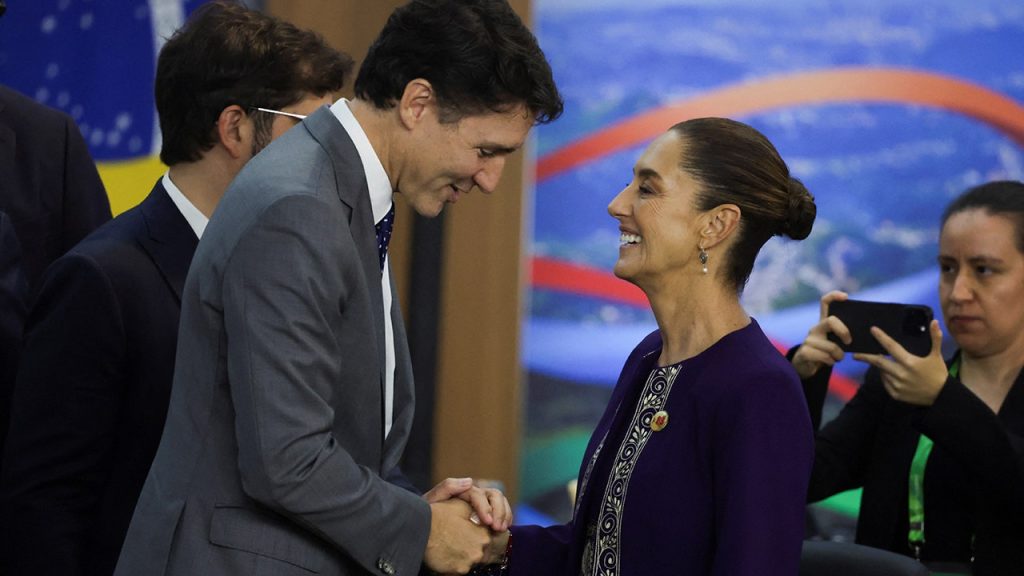Mexico’s President Claudia Sheinbaum recently expressed her discontent with Canada’s position following a dinner between Canadian Prime Minister Justin Trudeau and U.S. President-elect Donald Trump. The dinner was reportedly focused on border concerns related to drug trafficking and migration flows. In light of Trump’s threats to impose tariffs on both Canada and Mexico due to border issues, Sheinbaum asserted that Mexico’s cultural wealth is unparalleled and that Canada could only dream of possessing such richness. She stressed that Mexico deserves respect from its trading partners and pointed out that Canada also faces challenges related to drug consumption, specifically fentanyl.
Statistics from the U.S. illustrate the stark differences in drug-related issues between the two borders. In the last fiscal year, U.S. customs agents seized only 43 pounds of fentanyl at the Canadian border, sharply contrasting with 21,100 pounds seized at the Mexican border. This points to a significantly higher volume of drug trafficking through Mexico. Additionally, immigration arrests further highlight the disparity: the U.S. Border Patrol arrested 56,530 individuals at the Mexican border in just October alone, while only 23,721 arrests were made at the Canadian border over an entire year. A staggering 1.53 million encounters with migrants were recorded at the southwest border with Mexico during the reported timeframe.
Trump’s statements on social media underscore his viewpoint that both countries contribute to an unprecedented influx of crime and drugs into the United States. He has proposed a substantial 25% tariff on products imported from Mexico and Canada, which would take effect as part of the first Executive Orders he intends to issue upon assuming office. The tariff is aimed at curbing what Trump refers to as an “invasion” of illegal immigration and drug trafficking, particularly from Mexico. His remarks aim to position U.S. border security as a critical issue that needs urgent addressing.
In her remarks to the Associated Press, Sheinbaum noted that during her own recent conversation with Trump, he agreed on the importance of intelligence sharing in combating drug trafficking. She emphasized that Mexico would maintain a restrictive policy regarding U.S. law enforcement’s operational involvement within its territory, continuing the tight regulations set forth by her predecessor. This stance showcases Mexico’s intent to assert its sovereignty while collaborating with the U.S. on anti-drug efforts.
The dynamic between Mexico, Canada, and the U.S. is indeed complex, shaped by historical relationships and contemporary challenges. Sheinbaum’s comments reflect a wider sentiment in Mexican politics regarding the need for equitable treatment by its northern partners. This situation highlights the broader implications of immigration policy, drug trafficking, and international trade relations, as countries navigate their respective interests while negotiating security concerns.
As both countries await the practical outcomes of Trump’s proposed tariffs and policies, the conversations surrounding border security will remain a focal point for dialogue. The differing situations at the Canadian and Mexican borders will likely complicate collaborative efforts, requiring both nations to reassess their diplomatic and economic strategies in response to the evolving political landscape in the United States.


